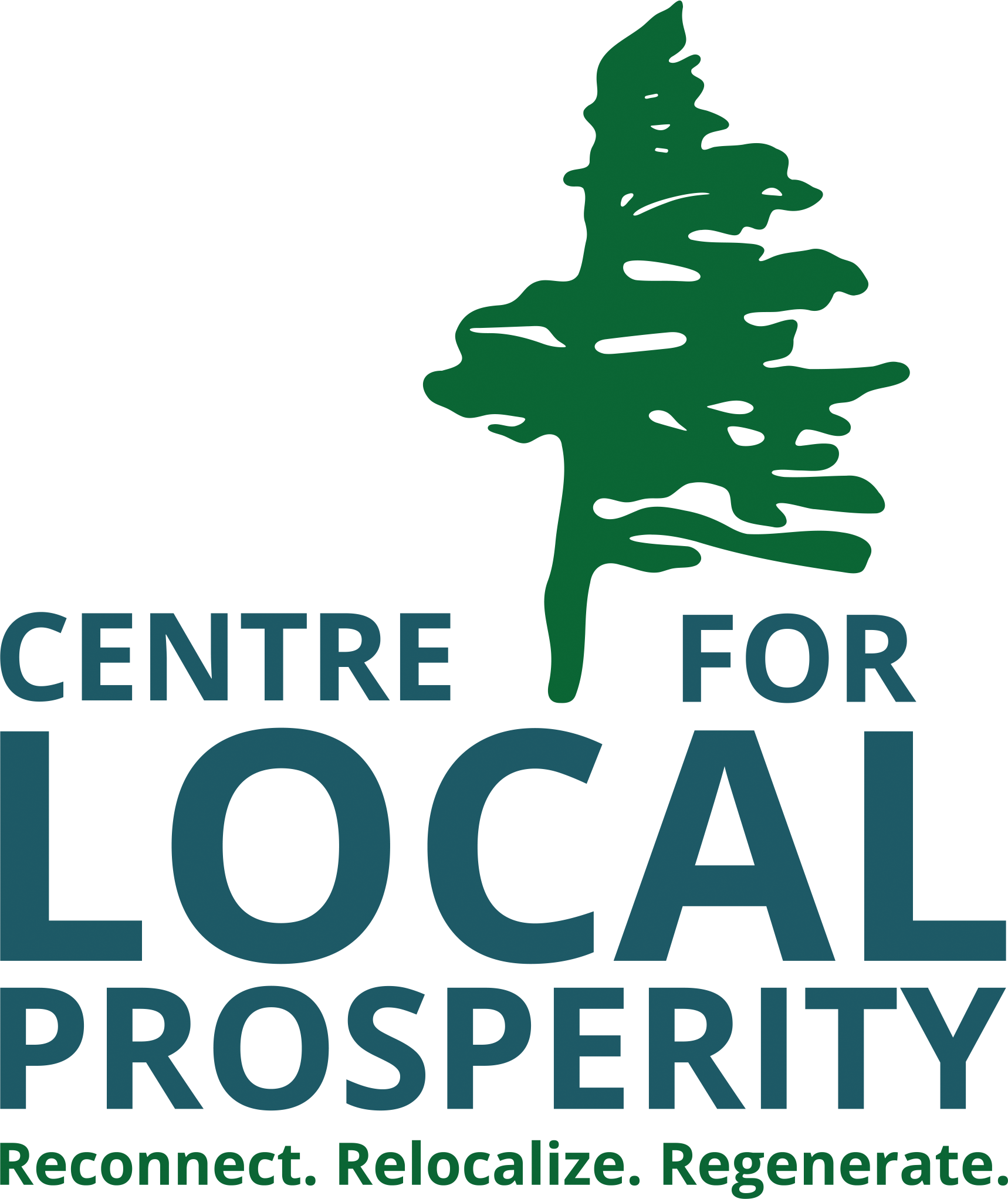Climate-induced Societal and Ecological Breakthrough in Atlantic Canada
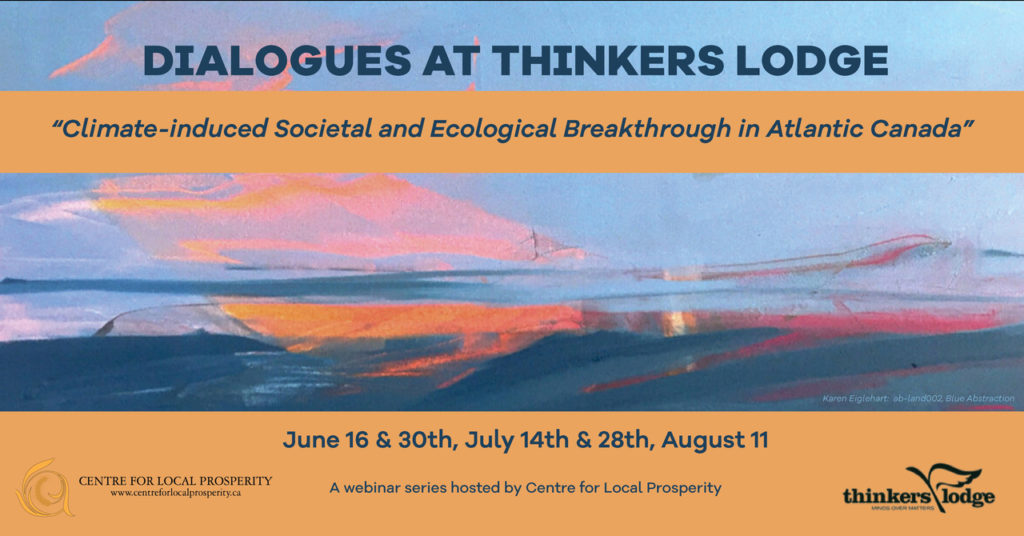
The world is changing quickly in fragile ways, with many saying we are heading to breakdown. But what are the breakthroughs in Atlantic Canada which can lead to a new regenerative economics and ways of living?
In this webinar series, Thinkers Lodge and the Centre for Local Prosperity brought together international thought leaders with regional change makers to discuss how transition is possible and is already happening in our region.
The current global economic model is deeply rooted in unlimited growth and unnecessary resource depletion that could lead to climate-induced societal breakdown. As a result, Atlantic Canadians may be facing an existential predicament over the coming decades – leading to either breakdown or to breakthrough. Identifying and acting upon inspiring local community actions as examples of breakthrough may avoid broad systemic collapse and lead to a more regenerative future for Atlantic Canada.
Scientists gathered at the Thinkers Lodge, Pugwash, Nova Scotia in 1957 to discuss an end to nuclear weapons proliferation. Their concluding statement:
“We are all convinced that mankind must abolish war or suffer catastrophe; that the dilemma of opposing power groups and the arms race must be broken; and that the establishment of lasting peace will mark the opening of a new and triumphant epoch for the whole of mankind. We earnestly hope that our conference may make a modest contribution to these great aims.”
Exploring alternative economic models for Atlantic Canada is bold, ambitious and aspirational. Yet, there is the potential that such an alternative “will mark the opening of a new and triumphant epoch for the whole of humankind” as well as the biosphere that supports all of life on earth.
Dialogues in this Webinar Series
- Wednesday June 16
Governing for Ecological Citizenship in Atlantic Canada
with David Orr, Scott Leckie and Rankin MacSween - Wednesday, June 30
Economic Growth at the Crossroads: A shift to a steady state regenerative economy in Atlantic Canada
with Brian Czech, Dr. Anders Hayden and Chris Googoo - Wednesday, July 14
Empowering the Rights of Nature Revolution in Atlantic Canada
with Albert Marshall, Tina Northrup, Sarah MacDonald and Pier-Olivier Boudreault - Wednesday, July 28
Living Communities and Inclusion in Atlantic Canada
with Jason McLennan, Carolyn Sloan and Donna Crossland - Wednesday, August 11
Crossing to Safety: Discovering our Common Home in Atlantic Canada
with Richard Roach, Scott Leckie, Robin Bronen and Cecilia Jimenez-Damary
June 16: Governing for Ecological Citizenship in Atlantic Canada
Political leadership in the 21st century must find the courage to help the public understand and face the difficult reality of societal and ecological breakdown. Such leadership must transcend party politics and narrow parochial municipal self-interest. This dialogue may help Atlantic Canadians navigate a predicament unlike any that humanity has ever faced.
David Orr, Scott Leckie and Rankin MacSween joined Centre for Local Prosperity Host Gregory Heming for a 1 hour discussion followed by a 1 hour Q&A session with the public.
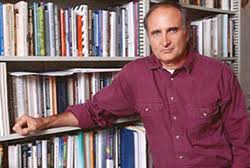
David Orr is the Paul Sears Distinguished Professor of Environmental Studies and Politics and senior advisor to the President at Oberlin College. He is the author of eight books, including Dangerous Years: Climate Change, the Long Emergency, and the Way Forward and Down to the Wire: Confronting Climate Collapse. He has been awarded eight honorary degrees and a dozen other awards including a Lyndhurst Prize, a National Achievement Award from the National Wildlife Federation, and a Visionary Leadership Award from Second Nature.
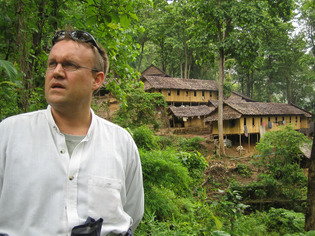
Scott Leakie is the founder and director of Displacement Solutions, a non-profit initiative designed to assist refugees and displaced persons to return and recover their original homes. An international human rights lawyer and global housing advocate, he is recognised internationally as an expert in the field of economic and social rights. He is currently a Visiting Professor at the Australian National University, Canberra, Australia.
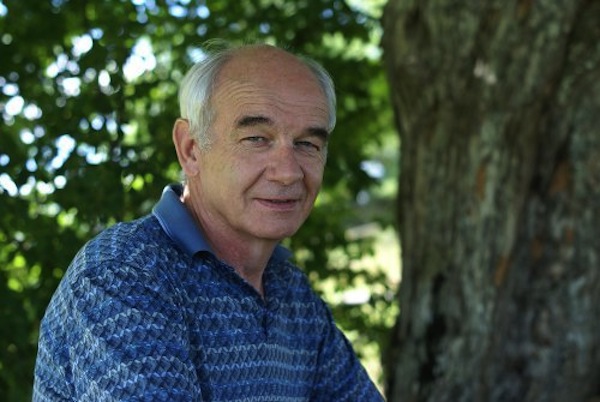
Rankin MacSween has worked with New Dawn Enterprises since 1977. He has recently retired as President and CEO of the New Dawn family of companies. Born and raised in Boisdale, Cape Breton Island, Rankin holds degrees from StFX, University of Ottawa, the Merrill Palmer Institute, a PhD from the University of Toronto and holds an honorary doctorate from Cape Breton University. He is a founding member of the Canadian Community Economic Development Network and in 2008 was inducted into the Cape Breton Business Hall of Fame.
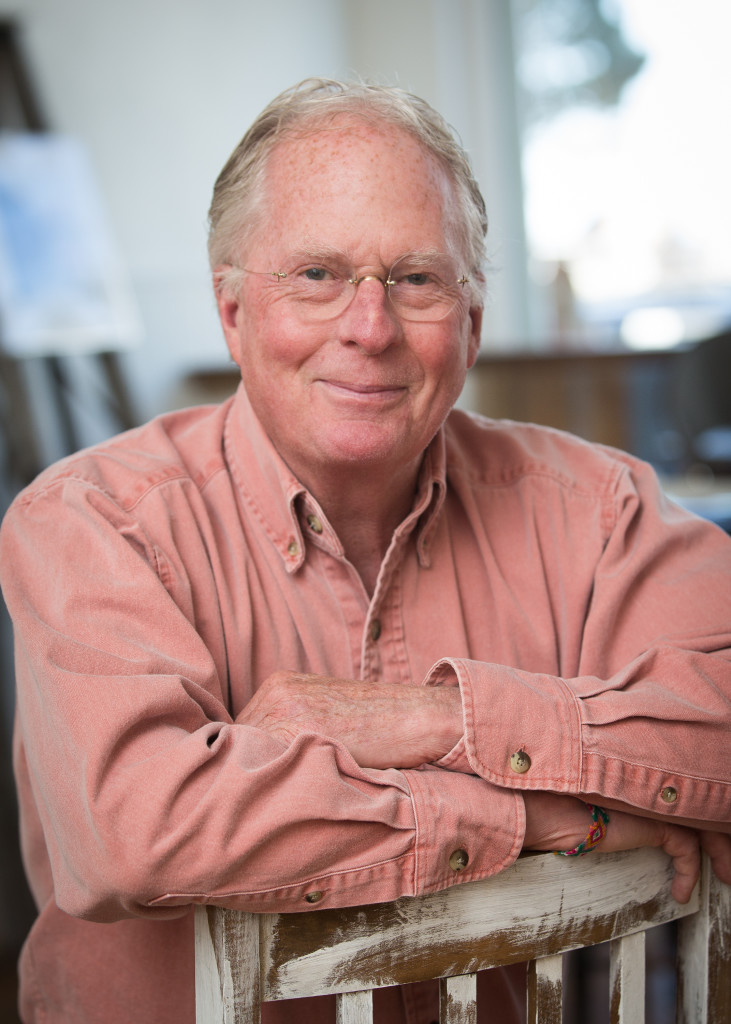
Gregory Heming is a philosophical ecologist, writer, climate activist and former elected official. He holds a PhD in Literary Ecology and Northern Studies with special interest in steady-state economics, public policy and ecocide. Gregory is a co-founder of the Centre for Local Prosperity.
Further Reading for Inquiring Minds
David Orr:
- Down to the Wire: Confronting Climate Collapse
- Dangerous Years: Climate Change, the Long Emergency, and the Way Forward
- Democracy Unchained: How to Rebuild Government for the People
Donald Savoie:
- Power: Where is it?
- Looking for Bootstraps: Economic Development in the Maritimes
Scott Leckie:
- Climate Change and Displacement Reader
- The United Nations Principles on Housing and Property Restitution for Refugees and Displaced Persons: A Commentary
June 30: Economic Growth at the Crossroads: A shift to a steady state regenerative economy in Atlantic Canada
Our addiction to economic growth measured by Gross Domestic Product (GPA) has driven humanity and biodiversity to the brink of collapse. There are alternative economic systems and means to measure wealth that are better suited to the demands of the 21st century. This dialogue lays out those alternatives for Atlantic Canada as a bioregion and the people who would like to continue to live, work and raise their families here.
Brian Czech, Anders Hayden and Chris Googoo joined Centre for Local Prosperity Host Gregory Heming for a discussion followed by a Q&A session with the public.
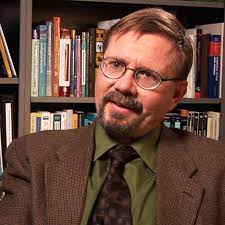
Brian Czech is the founding president of Centre for the Advancement of a Steady State Economy. He served as the first Conservation Biologist in the history of the U.S. Fish and Wildlife Service from 1999-2017, and concurrently as a visiting professor of natural resource economics in Virginia Tech’s National Capitol Region. He is the author of several books including Supply Shock, Shoveling Fuel for a Runaway Train, and The Endangered Species Act: History, Conservation Biology, and Public Policy.
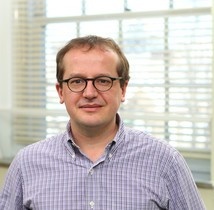
Dr. Anders Hayden is an Associate Professor of Political Science at Dalhousie University and his research examines the social and political responses to climate change, and other environmental challenges. He is currently involved in research on the political and policy impacts of alternative measures of wellbeing and prosperity (i.e. “beyond GDP” measurement).
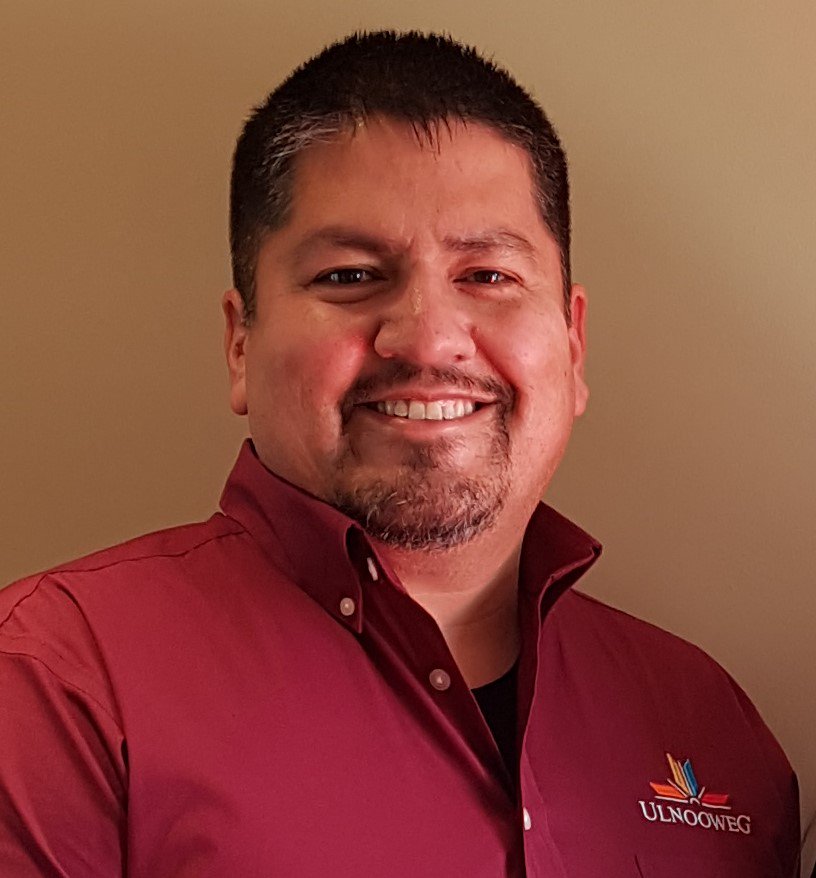
Christopher Googoo is the Chief Operating Officer for Ulnooweg Development Group, an Indigenous led organization and Executive Director of The Ulnooweg Indigenous Communities Foundation. His work involves building bridges in various sectors which effect the development of healthy indigenous economies and communities regionally and at a national level.

Gregory Heming is a Co-founder of the Centre for Local Prosperity. He is a philosophical ecologist, writer, climate activist and former elected official. He holds a PhD in Literary Ecology and Northern Studies with special interest in steady-state economics, public policy and ecocide.
Further Reading for Inquiring Minds
Brian Czech:
- Supply Shock: Economics Growth at the Crossroads and the Steady State Revolution
- Shoveling fuel for a Runaway Train
Anders Hayden:
- Sharing the Work, Sparing the Planet: Worktime, Consumption and Ecology
Jane Jacobs:
- The Nature of Economics
Janice Stein:
- The Cult of Efficiency
Naomi Klein:
- This Changes Everything: Capitalism and the Climate
July 14: Empowering the Rights of Nature Revolution in Atlantic Canada
A system of laws that do not represent all members of a society and the natural world equally, serves neither. This dialogue on litigation and a bill of rights for nature will help Atlantic Canadians demand and benefit from a more holistic jurisprudence.
Albert Marshall, Tina Northrup, Sarah MacDonald and Pier-Olivier Boudreault joined Centre for Local Prosperity Host Gregory Heming for a discussion followed by a Q&A session with the public.
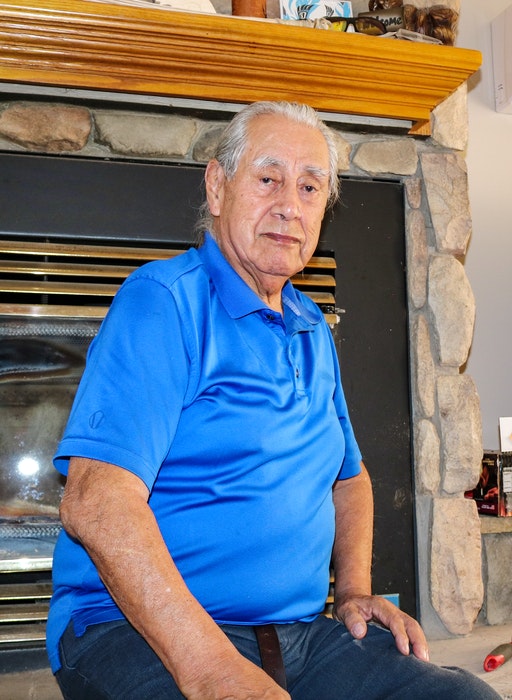
Albert Marshall is a highly respected and much loved Elder of the Mi’kmaw Nation. He lives in Eskasoni First Nation in Unama’ki (Cape Breton), NS, and is a passionate advocate of cross-cultural understandings and healing and of our human responsibilities to care for all creatures and our Earth Mother. He is the “designated voice” with respect to environmental issues for the Mi’kmaw Elders of Unama’ki.
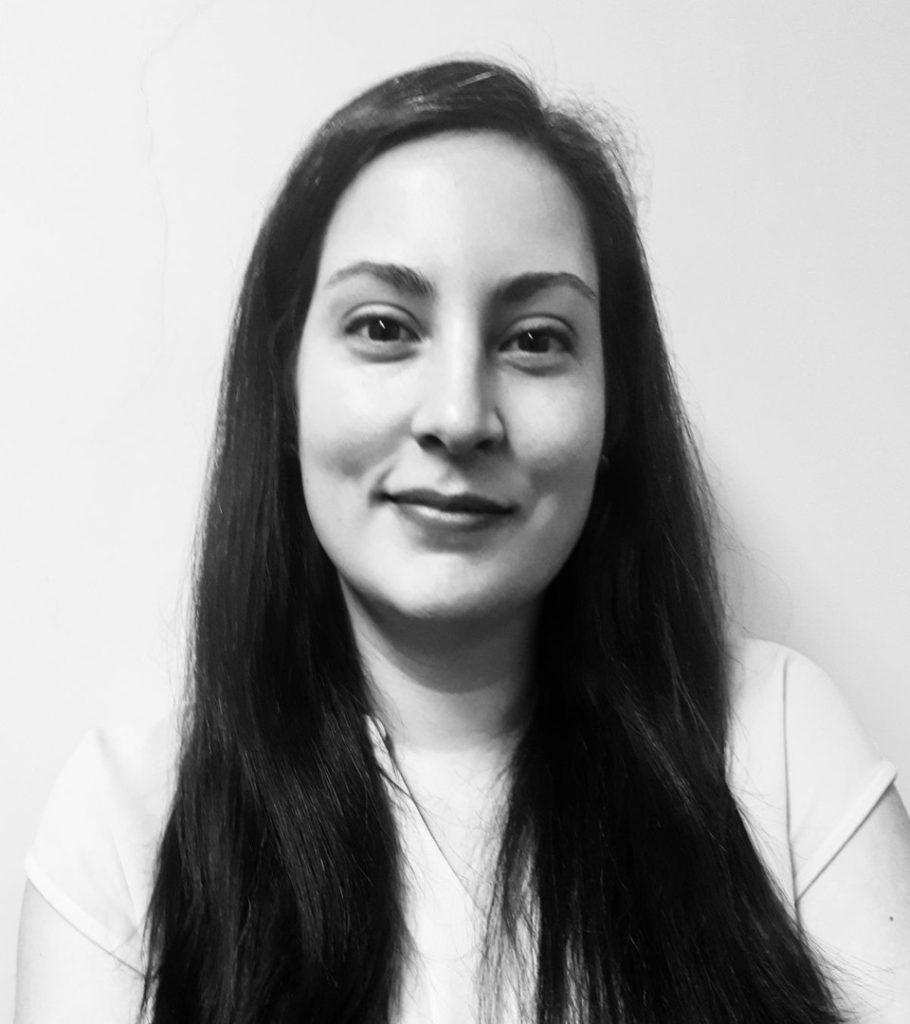
Tina Northrup is a staff lawyer at East Coast Environmental Law with a passion for public legal education and community collaboration. Her areas of interest include Aboriginal and Indigenous law, human rights in the context of environmental and climate justice, and laws relating to climate change mitigation and adaptation.
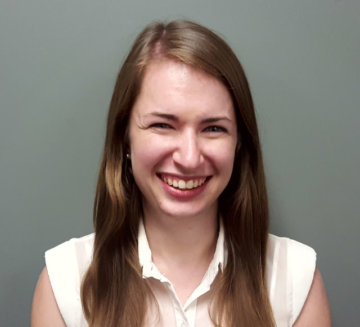
Sarah MacDonald is a staff lawyer with Ecojustice. She is a settler living and working in Kjipuktuk (Halifax). After working with the organization as both an articling student and summer student. She grew up in Ottawa and graduated from Dalhousie University’s Schulich School of Law in 2016.
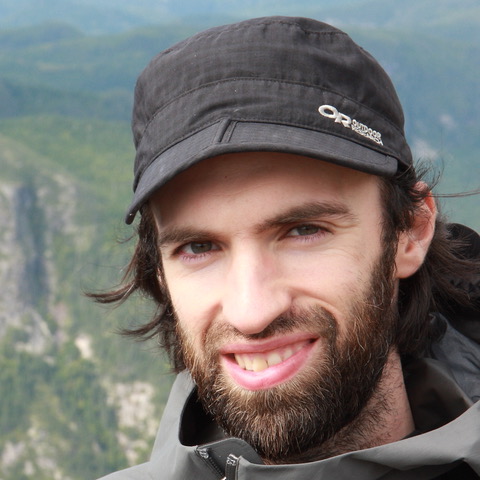
Pier-Olivier Boudreault is a professional biologist, working as the director of conservation for the Canadian Parks and Wilderness Society – Quebec section (CPAWS Quebec). His interest in conservation, protected areas and species at risk comes from his work experience at the Parks Canada Agency and non-governmental organisations in Canada and Latin America. He works with governments, indigenous communities, citizen groups, industry and other environmental organizations to achieve CPAWS’ vision to protect 50% of our wild spaces and create new protected areas. He has also worked as a freelance journalist and publishes his thoughts in various opinion forums. He is also responsible for the campaign for the protection of the Magpie River at CPAWS Quebec, and coordinated the initiative for the recognition of the rights of the river in partnership with the International Observatory on the Rights of Nature and the Muteshekaushipu Alliance.

Gregory Heming is a Co-founder of the Centre for Local Prosperity. He is a philosophical ecologist, writer, climate activist and former elected official. He holds a PhD in Literary Ecology and Northern Studies with special interest in steady-state economics, public policy and ecocide.
Further Reading for Inquiring Minds
Christopher D. Stone:
- Should Trees Have Standing? Toward Legal Rights for Natural Objects
David R. Boyd:
- The Rights of Nature: A legal revolution that could save the world
Oliver Houck:
- Noah’s Second Voyage: The Right of Nature as Law
Chief Justice Fraser:
July 28: Living Communities and Inclusion in Atlantic Canada
Building living buildings and living communities is rooted in a deep understanding of what it means to be inclusive. Adopting an ethic of place is a good point of beginning: An ethic of place respects equally the people of a region and the land, animals, vegetation, water, and air. It recognizes that people revere their physical surroundings and they need and deserve a stable, productive economy that is accessible to those with modest incomes. An ethic of place ought to be a shared community value and ought to manifest itself in a determination to treat the environment and its people as equals, to recognize both as sacred,and to insure that all members of the community not just search for but insist upon solutions that fulfill the ethic.
Jason McLellan, Carolyn Sloan and Donna Crossland joined Centre for Local Prosperity Host Gregory Heming for a one hour discussion followed by a Q&A session with the public.
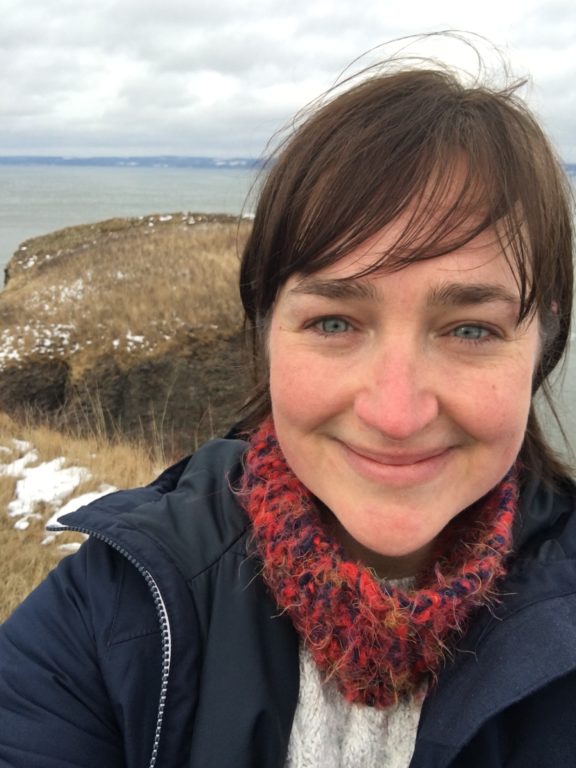
Carolyn Sloan While living in the Arctic as a journalist, Carolyn Sloan was given the opportunity to run a group home for adults with disabilities and eventually started a social enterprise to provide employment for individuals with various barriers to economic inclusion. Now the director of Inclusion Clare in Church Point, Nova Scotia, her work centres around self-advocate leadership and community empowerment through social and economic inclusion.
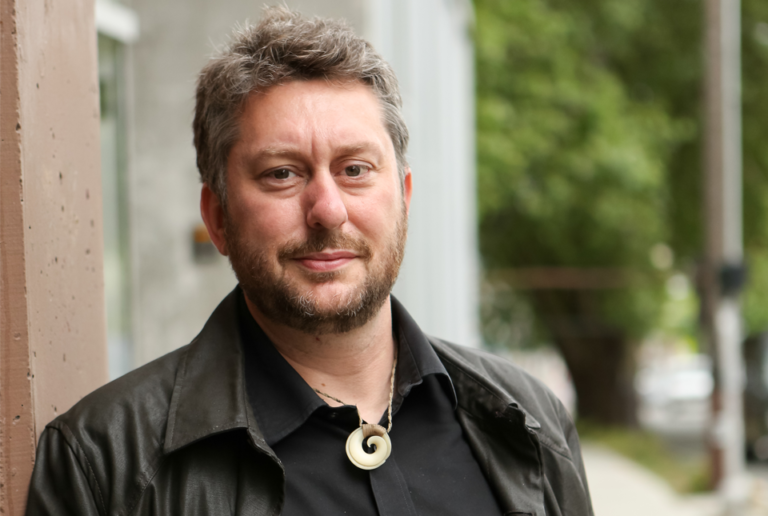
Jason McLennan is the creator of the Living Building Challenge – the most stringent and progressive green building program in existence, as well as a primary author of the WELL Building Standard. He is the author of seven books on Sustainability and Design including the Philosophy of Sustainable Design, which is considered the ‘bible’ for green building’ – and is both an Ashoka Fellow and Senior Fellow of the Design Future’s Council. Jason is the recipient of the prestigious Buckminster Fuller Prize (the planet’s top prize for socially responsible design).
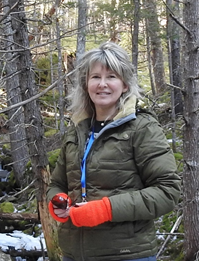
Donna Crossland is dedicated to managing and restoring healthy Acadian forest and has done so through a long career at Parks Canada, with direct involvement in two provincial forestry strategies, as well as involvement in private group efforts. She has researched historical forest ecology, natural disturbance processes including fire history, and conducts forest songbird acoustic monitoring. Donna also serves on the Minister’s Advisory Committee for the implementation of ecological forestry recommendations on NS Crown lands. She has co-authored with Bob Bancroft, Forests: Restoring the Health of Nova Scotia’s Forests.

Gregory Heming is a Co-founder of the Centre for Local Prosperity. He is a philosophical ecologist, writer, climate activist and former elected official. He holds a PhD in Literary Ecology and Northern Studies with special interest in steady-state economics, public policy and ecocide.
Further Reading for Inquiring Minds
Jason McLennan:
- Transformational Thought
August 11: Crossing to Safety: Discovering our Common Home in Atlantic Canada
E.O. Wilson once remarked “the real problem of humanity is the following: we have paleolithic emotions; medieval institutions; and god-like technology.”
If Wilson’s summary is close to correct (and there is a vast body of evidence to suggest he is); as climate breakdown continues to intensify (as science is able to demonstrate); as the number of climate refugees seeking safe haven increases (as an array of world bodies, including the United Nations, have now shown); what emotional, institutional and technological makeover is Atlantic Canada prepared to undergo if we make the conscious decision to be that safe haven for climate displaced persons? If any of us are going to find shelter from what Secretary General of the United Nations General António Guterres calls the ‘winds of madness’, then some place, some collective citizenry, must show the world the way. This dialogue hopes to plant seeds that may one day ripen into a common home for humanity, a sustainable place for all of life. This begins, as it must, with a collective emotional, institutional and technological expression of neighbourliness among Atlantic Canadians.
Richard Roach, Scott Leckie, Robin Bronen and Cecilia Jimenez-Damary joined Centre for Local Prosperity Host Gregory Heming for a discussion followed by a Q&A session with the public.
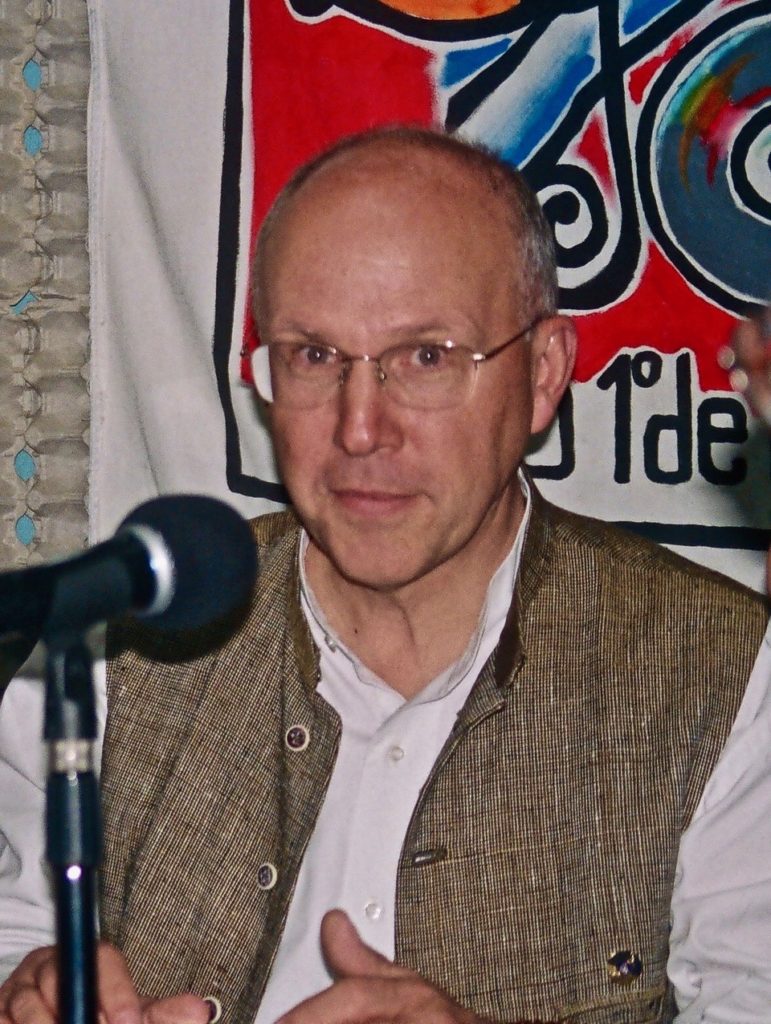
Richard Roach has devoted his working life to peace, human rights and the environment. He was the global media chief of Amnesty International, a trustee of the Rainforest Foundation, and active in diverse peace initiatives. Raised in a Buddhist family in Canada, he served for 12 years as the President of the worldwide Shambhala community. As part of a high-level interfaith delegation to to the Rohingya refugee camps on the Bangladesh/Myanmar border in 2018 he helped launch the Buddhist Humanitarian Project, featured by Lion’s Roar in “Meditating on the Buddha in the midst of Buddhist Terror.”

Scott Leakie is the founder and director of Displacement Solutions, a non-profit initiative designed to assist refugees and displaced persons to return and recover their original homes. An international human rights lawyer and global housing advocate, he is recognised internationally as an expert in the field of economic and social rights. He is currently a Visiting Professor at the Australian National University, Canberra, Australia.
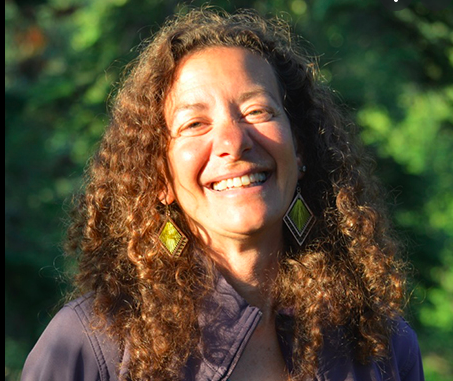
Robin Bronen works as a human rights attorney and has been researching and working with communities forced to relocate because of climate change since 2007. She is a senior research scientist at the University of Alaska Fairbanks and co-founded and works as the executive director of the Alaska Institute for Justice, a non-governmental organization that is the only immigration legal service provider in Alaska. The Alaska Institute for Justice houses a language interpreter center, training bilingual Alaskans to be interpreters, and also serves as a research and policy institute focused on climate and social justice issues.
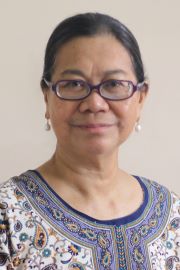
Cecilia Jimenez-Damary is a lawyer in human rights and international humanitarian law specialised in forced displacement and migration. She has over three decades of experience in NGO human rights advocacy for the Asia-Pacific region and teaching experience in human rights and humanitarian law. Ms. Jimenez-Damary previously acted as Senior Legal Adviser and Trainer with the Internal Displacement Monitoring Centre (IDMC) of the Norwegian Refugee Council (NRC) in Geneva; as the National Director of the IDP Project of the Commission on Human Rights of the Philippines; and as the government representative to the Philippine Transitional Justice and Reconciliation Commission for the Bangsamoro.

Gregory Heming is a Co-founder of the Centre for Local Prosperity. He is a philosophical ecologist, writer, climate activist and former elected official. He holds a PhD in Literary Ecology and Northern Studies with special interest in steady-state economics, public policy and ecocide.

